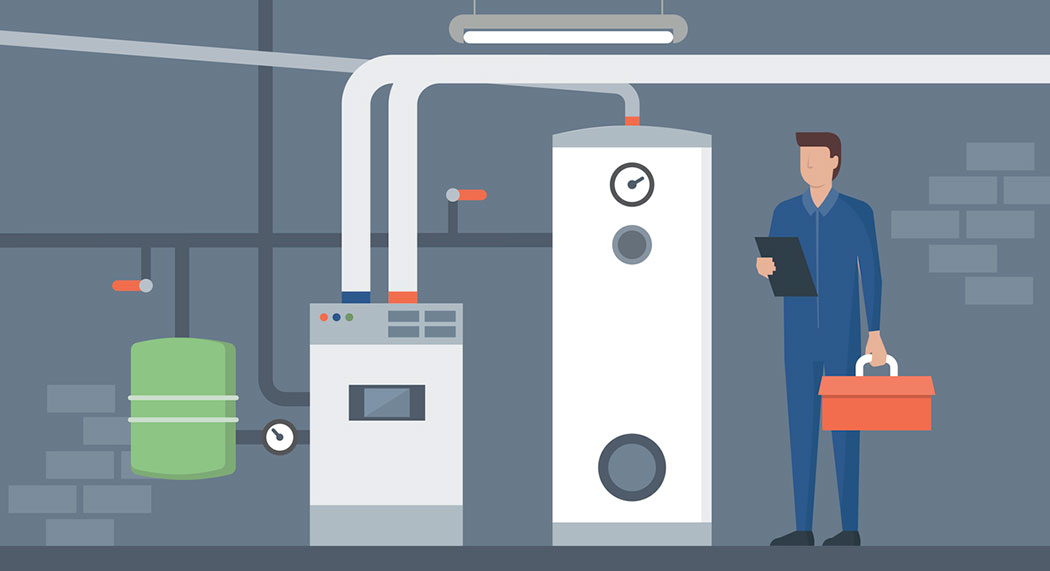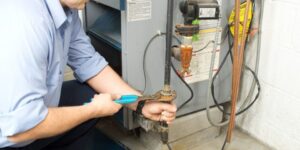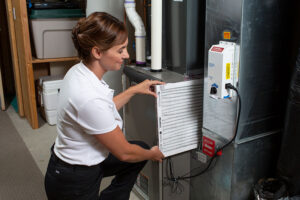Purchasing a new heating system is an expenditure in your home that should be planned carefully. The initial investment may seem daunting, but the furnace will pay for itself over time. In this article, we will discuss how long a furnace typically lasts and what you can do to extend its service life. Continue reading to find out!
What is the Average Lifespan of a Furnace?
The average lifespan of a good furnace is between 10 and 40 years. The device’s longevity is influenced by several factors, including the type of fuel used, the frequency with which it is operated, and the regularity with which it is serviced.
The typical service lives of electric, oil, and gas furnaces are examined below. However, it’s essential to keep in mind that these figures only hold if you keep up with routine maintenance on your system. A well-maintained furnace can have a useful life well beyond ten years. Moreover, a 10-year components warranty is standard on most models.
What is the average lifespan of an Electric Furnace?
As long as it is properly maintained, a 20-30 year lifespan is possible for an electric furnace. Electric furnaces cost more to run than gas models, but they can last up to ten years.
What is the average lifespan of an Oil Furnace?
The average lifespan of an oil furnace is 30 years. Although engines powered by this fuel type are becoming less prevalent, the cast-iron heat exchangers on used guarantee they will live longer than their more modern counterparts.
What is the average lifespan of a Gas Furnace?
The average gas furnace has a lifespan of 15–20 years. A gas furnace is your best bet for heating your home quickly, but it tends to break down more frequently than oil or electric types.
What Can Cause A Furnace To Have A Shorter Lifespan?
Improper set-up
Most furnace warranties are null and invalid if a certified HVAC contractor does not perform the installation. Get a reliable contractor to do the heating installation right from scratch to avoid problems afterward.
Brand and Specification
If you want your heating system to last and perform at its best, purchasing a top-notch furnace is in your best interest. Poor-quality devices have a higher failure rate and burn out more often than reputable models.
Incorrect Sizing
Your furnace may be overworking since it was initially put in a house that was too small for the size furnace needed to heat effectively. As a result, premature failure of the furnace may occur.
Furnace’s Age.
Heating systems in homes over ten years old may need more maintenance or break down more often.
Not keeping up with servicing and repairs.
Your home’s heating system needs regular servicing from an HVAC expert, just like any other equipment. Don’t forget to schedule a tune-up for your furnace in the wintertime as part of your regular servicing.
How Will I Know When It’s Time to Replace My Furnace?
Eventually, the furnace’s functional life will expire, no matter how well it was installed or maintained. The following are some indications that a furnace replacement is needed:
- Constant visits by maintenance workers
- High maintenance costs
- The heating is not uniform throughout the space
- A chilling blast from the furnace
- Weird noises are coming from the system
- Higher energy costs, even for the most energy-efficient furnaces
Having Issues With Your Furnace? Frost Can Help!
Call Frost now if you need professional furnace services. We are your one-stop service for all HVAC units. Call us at 206-778-2848 or contact us right here.





Recent Comments